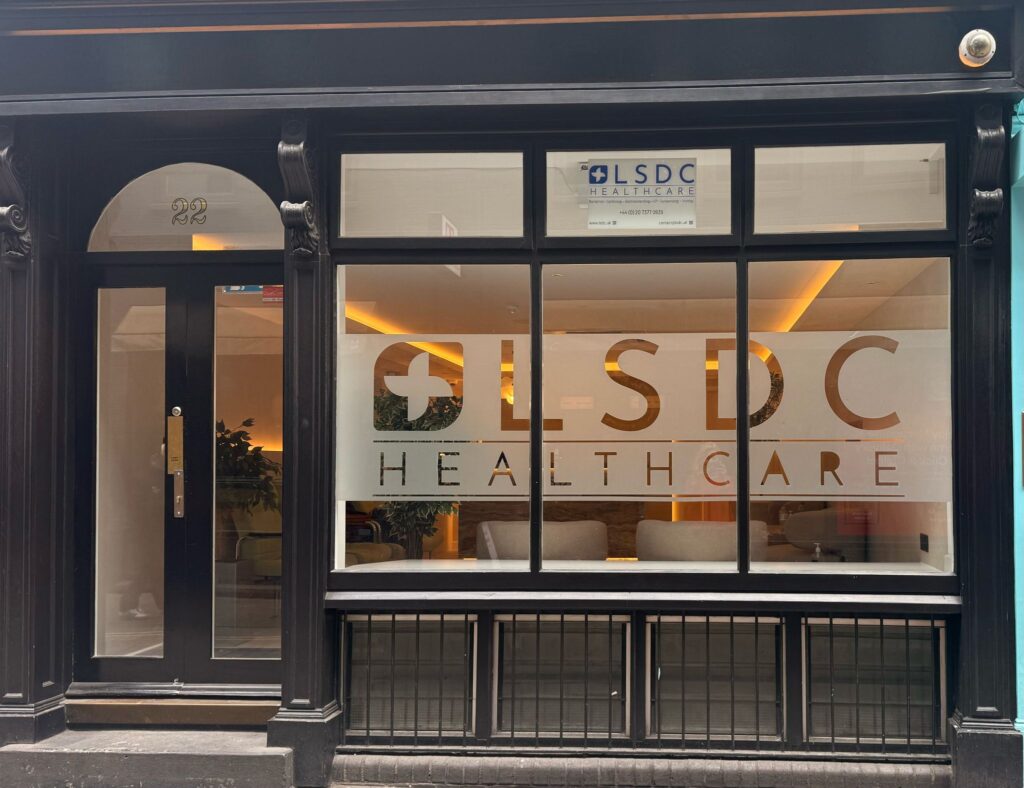Private H. pylori Testing & Eradication in Central London
At LSDC Healthcare, we provide rapid testing and eradication treatment for Helicobacter pylori (H. pylori), led by consultant gastroenterologists.
Located just two minutes from Liverpool Street Station, our clinic offers same-day consultations, diagnostic testing, and immediate treatment planning for patients with suspected or confirmed H. pylori infection.
What Is H. pylori?
Helicobacter pylori is a common stomach bacterium that can cause:
Indigestion and stomach pain
Gastritis (stomach lining inflammation)
Peptic ulcers
Increased risk of stomach (gastric) cancer if untreated
Around 40% of adults in the UK may carry H. pylori — but not everyone develops symptoms.
Symptoms of H. pylori Infection
Patients may experience:
Persistent indigestion or heartburn
Upper abdominal pain or bloating
Nausea
Unexplained weight loss
Anaemia (low iron levels)
History of stomach or duodenal ulcers
How Do We Test for H. pylori?
At LSDC, we offer a full range of non-invasive and endoscopic tests:
Urea breath test — quick and highly accurate
Stool antigen test — checks for active infection
Blood test — for antibodies (less commonly used now)
Gastroscopy with biopsy — gold standard, also checks for gastritis, ulcers, and Barrett’s oesophagus
H. pylori Eradication Treatment at LSDC
If you test positive, your consultant will prescribe eradication therapy, usually:
A course of antibiotics (dual or triple therapy)
A proton pump inhibitor (PPI) to reduce stomach acid
Sometimes bismuth-based therapy in resistant cases
Treatment is tailored to each patient, considering antibiotic resistance patterns, allergies, and prior therapies.
What Happens If H. pylori Is Not Treated?
Untreated H. pylori can lead to:
Peptic ulcer disease
Chronic gastritis
Iron deficiency anaemia
Increased risk of gastric cancer
This is why consultant-led diagnosis and eradication is strongly recommended.
Consultant Expertise at LSDC Healthcare
Our gastroenterologists have extensive experience in diagnosing and treating H. pylori, including patients with resistant infections or complex gastric disease.
We also provide follow-up testing to confirm eradication and long-term care for patients with ulcers, anaemia, or cancer risk.
Why Choose LSDC for H. pylori Care?
-
Consultant-led testing and treatment — no GP delays
-
Same-day urea breath and stool antigen testing
-
Rapid eradication therapy tailored to resistance patterns
-
On-site gastroscopy with biopsy if needed
-
Follow-up testing to confirm eradication
-
Central London location near Liverpool Street Station
-
Insurance recognised — Bupa, AXA, Aviva, Cigna, Vitality, Healix
-
Self-pay packages available
Private Fees and Insurance
We offer transparent self‑pay packages for private gastroscopy, colonoscopy and advanced endoscopic procedures, and we’re recognised by Bupa, AXA, Aviva, Cigna, Healix and other major insurers.
Our team will assist with pre‑authorisation and claims to make the process straightforward.
LSDC Healthcare
A couple of minutes outside Liverpool St Station, this excellent facility is conveniently located for Medical consultations in London.
This facility is open during the evenings making it an excellent choice for busy professionals.

Book A Consultation
If you’ve been advised to undergo a gastroscopy, colonoscopy, or would like a second opinion, we invite you to book a consultation with one of our specialists.
Our team will review your symptoms, medical history, and determine the most appropriate diagnostic pathway for you.
Frequently Asked Questions — H. pylori
What is H. pylori?
Helicobacter pylori is a bacterium that infects the stomach lining, causing indigestion, ulcers, and sometimes increasing cancer risk.
How is H. pylori diagnosed?
Through urea breath test, stool antigen test, or gastroscopy with biopsy. Breath test is the most common method.
Is H. pylori dangerous?
Most infections are mild, but untreated cases can cause ulcers and increase the risk of stomach cancer.
How is H. pylori treated?
With antibiotics and acid-reducing medication (PPI), tailored to your medical history and resistance risk.
How successful is eradication therapy?
Standard treatment cures about 80–90% of infections. Resistant cases may require alternative regimens.
Do I need follow-up testing?
Yes. Follow-up breath or stool testing is important to confirm eradication, usually 4–6 weeks after treatment.
Is H. pylori testing covered by insurance?
Yes. LSDC is recognised by all major UK insurers. Self-pay packages are also available.
